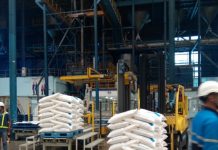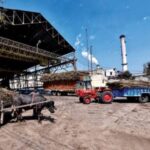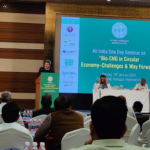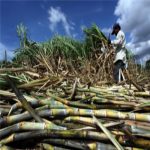Today, sugar industry leaders, regional Queensland representatives and businesses converge on the Queensland Parliament to put forward a bold vision to supercharge regional economies through sugar-derived bioenergy, biofuels and biomanufacturing, according to the press release.
Appearing today at the Brisbane hearing for the Queensland Parliamentary Inquiry into Sugarcane Bioenergy Opportunities, the Australian Sugar Manufacturers have noted the importance of the bioeconomy to not only create new regional jobs but to underpin the long-term viability of the sugar industry.
“The sugar industry can supply over 30% of Australia’s domestic aviation fuel needs using sugar-derived biofuels, provide affordable biogas to regional manufacturers, and replace coal to make steel production green with renewable pellets made from sugar byproducts”, said Ash Salardini, CEO of the ASM.
“This agenda will create thousands of new jobs in places like Bundaberg, Mackay, Townsville and Cairns, and will attract more manufacturing businesses to regional Queensland through access to affordable energy and secure the long-term viability of the sugar industry that already supports 20,000 jobs”.
The Bundaberg region could be established as a bio-precinct, producing biofuels, biogas and hydrogen and making it an attractive hub for heavy industries through the availability of affordable and reliable energy. Also appearing today, Licella spoke to the opportunity to scale a biofuels industry in Queensland using Australian technology and sugarcane residues, with Project Swift in the Bundaberg region offering a model for regional development.
“Biofuels are a scalable opportunity to support the long-term diversification of Queensland’s sugar industry. Licella’s Australian-owned Cat-HTR™ technology converts non-edible biomass residues into low-carbon fuels,” said Ms. Andrea Polson, General Manager.
“Project Swift, now in detailed feasibility with Isis Central Sugar Mill, offers a blueprint for turning local resources into regional jobs and new economic value. The technology’s flexibility also enables future expansion by tapping into underutilised agricultural and forestry residues.”
The opportunity for Townsville North Queensland to join Australia’s bioenergy future is here now, with the region leading the country in sugarcane production, including more than 11 million tonnes produced annually in the Burdekin and Hinchinbrook alone.
Townsville Enterprise Director Regional Development and Investment, Chris McDougall, said the region is well placed to drive Queensland’s clean energy transition.
“Sugarcane can be more than just a food source – it can power Queensland’s clean energy future, drive regional development and strengthen our sovereign fuel capability.”
“Townsville also presents a unique opportunity as Australia’s defence capital. A locally produced biofuels industry would provide the Australian Defence Force (ADF) with resilient and secure fuel supplies, giving our service men and women confidence that their aviation and ground fuel needs can be met right here in the region.”
“With coordinated policy and investment, our region can unlock a bioenergy industry that creates jobs, attracts investment and builds national fuel security.”
Beyond bioenergy, the sugar industry has the opportunity to establish an internationally competitive biomanufacturing capability, with places like Mackay already having all the assets to make products such as highvalue industrial chemicals, nutraceuticals like allergen-free baby formula, and alternative proteins.
Greater Whitsunday Alliance (GW3) Chief Executive Officer Kylie Porter said the Greater Whitsunday region is bullish about the bioenergy and biomanufacturing synergies.
“Mackay and the Greater Whitsunday has been focused on establishing a biomanufacturing industry for many years. We know that we have all the essential ingredients required to launch this high-value sector in our region, and the time is now.”
“Industry leaders like Cauldron Ferm and other international proponents are ready to invest. Bringing the bioenergy and biomanufacturing agendas together has the potential to transform Queensland’s economy.” Industry, regional communities and the Queensland Government need to work hand-in-glove to make these opportunities a reality.
“We need co-investment to build the supply chains that will service these markets, and we need to invest in R&D to adopt the latest and greatest technologies that will optimise sugar and biofuels production and create new valueadd opportunities in biomanufacturing,” concluded Ash Salardini.

















[…] Source : Chinimandi […]